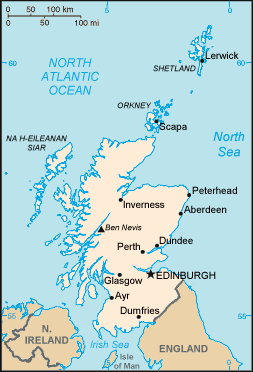NewsDesk @bactiman63
Scotland health officials published a report, Chlamydia trachomatis infection in Scotland 2013 – 2022 describing chlamydia trachomatis infection, the most common sexually transmitted infection in Scotland recently.

Some of the main points of the report include:
- In 2022, there were 13,148 diagnoses of chlamydia in Scotland. This is higher than the previous two years where testing was affected by the COVID-19 pandemic but lower when compared to 2019 (17,336).
- The incidence of diagnosed chlamydia infection has increased gradually since the COVID-19 pandemic but has not reached the levels observed prior to the pandemic.
- Over half (56%) of diagnoses in 2022 were in women (7,368).
- In 2022, 72% of diagnoses in women were in those aged less than 25 years compared to 50% in men. Historically, the majority of chlamydia diagnoses in women have been in those aged less than 25 years, while in men, diagnoses are distributed across all age groups.
- At the end of December 2022, the number of individuals tested for chlamydia in sexual health clinics has not yet recovered to that observed prior to the COVID-19 pandemic.
- There were 2,552 positive individuals per 10,000 people tested in the last quarter of 2022, consistent with the quarterly incidence before the COVID-19 pandemic.
- In 2022, in the sexual health clinic setting, the incidence of diagnosed chlamydia infection was highest among heterosexual men, followed by women and then gay, bisexual and other men who have sex with men (GBMSM). This is similar to observations made before the COVID-19 pandemic. There has been a small increase in incidence observed in heterosexual men and women tested in sexual health clinics through 2021 and 2022.
Subscribe to Outbreak News TV on YouTube
Chlamydia infection is passed from person to person through unprotected (without a condom) vaginal, anal or oral sex. It often has no symptoms, but, if untreated, it can lead to serious health problems, including pelvic inflammatory disease (PID) in women which can cause ectopic pregnancy and infertility. In men it can cause epididymitis (a painful inflammation affecting the testicles). Chlamydia infection can be treated if the appropriate antibiotic is taken at an early stage.
Dr Kirsty Roy, Consultant in Health Protection at Public Health Scotland explained:
“While the number of cases is not as high as that seen prior to the COVID-19 pandemic, chlamydia remains the most common sexually transmitted infection in Scotland.
“The best way to reduce your risk of catching sexually transmitted infections is the correct and consistent use of a condom for sex with new and casual partners. If you think you have chlamydia, you should make an appointment to get tested. Testing and treatment can stop the infection and reduce your risk of having more serious problems.”
Related:
The Netherlands reports a 33% increase in gonorrhea cases in 2022
Scotland: Gonorrhea cases almost 50% higher than the number recorded in 2019
Norway: Significant increase in chlamydia and gonorrhea in 2022

